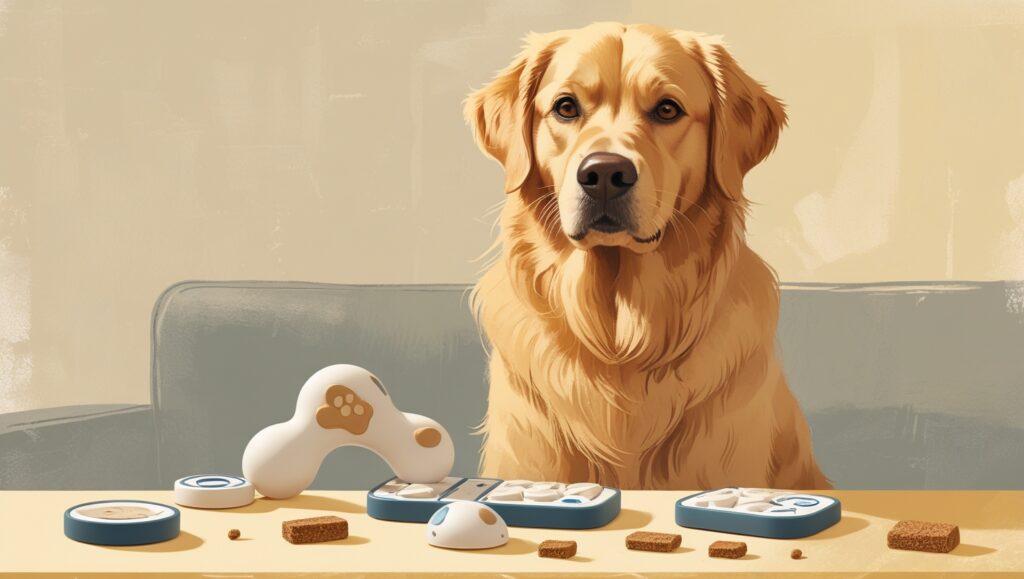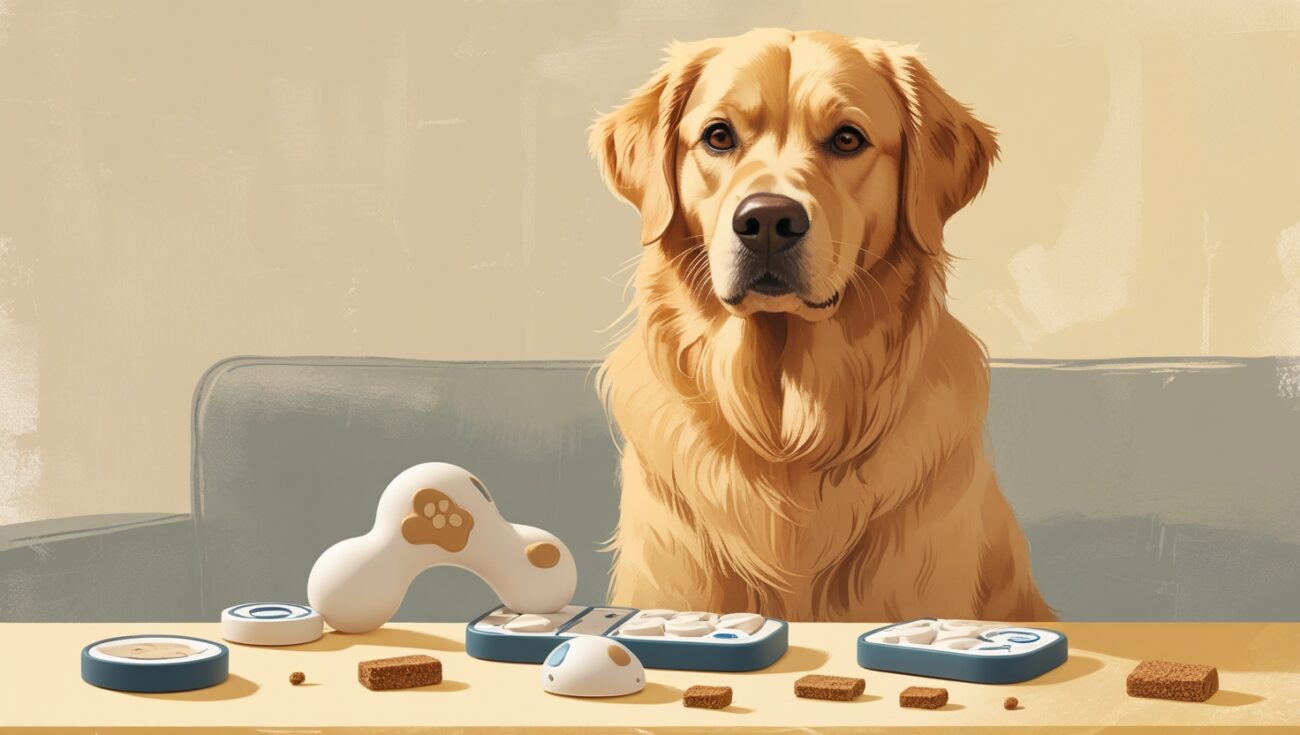Using Brain Games to Ease Dog Rehoming Transitions
When I first brought my rehomed dog home, I could feel her confusion and stress — everything was new and overwhelming for her. I wanted so badly to help her settle in and feel safe, but at first, she seemed withdrawn and unsure. What finally made the difference? Adding gentle brain games to our routine. They gave her a positive way to bond with me, build confidence, and start adjusting to her new life.
In this post, I’ll show you exactly how using brain games can ease dog rehoming transitions — and why it works so well for building trust and comfort. If you want the full brain training program that helped us, here’s my personal link:
Brain Training for Dogs — Click here to check it out

Table of Contents
Why Brain Games Help Rehomed Dogs
Rehomed dogs often:
- Feel stressed by all the changes
- Lack trust and confidence in their new environment
- Don’t yet know what’s expected of them
- May show fear, withdrawal, or uncertainty
- Need positive experiences to help them adjust
Brain games:
- Create predictable, positive routines
- Help dogs build trust with their new person
- Offer gentle mental engagement that calms the nervous system
- Give dogs something fun and rewarding to focus on
- Encourage curiosity and exploration
- Help reduce anxiety and build emotional resilience
The Changes I Saw
When I started adding brain games for my rehomed dog:
- She became more relaxed in the home
- Started showing curiosity instead of fear
- Our bond and trust grew stronger each day
- She began responding more confidently to new experiences
- Her stress behaviors (pacing, whining) decreased noticeably
This is the exact program that helped us step-by-step:
Brain Training for Dogs — Full Program Here
Best Brain Games for Rehoming Transitions
1. Scent Games
Easy scent games help your dog explore and feel comfortable with their new space.
2. Puzzle Feeders
Lets them “work” for food and provides calming mental engagement.
3. Gentle Trick Training
Simple tricks (touch, sit, paw) build confidence and offer positive interaction.
4. Focus Games
“Watch me” and light name games help your dog focus on YOU — building trust.
5. Snuffle Mats
Encourages foraging, calms nerves, and offers gentle brain work.
Final Thoughts
If you’ve just brought home a rehomed or rescue dog, adding brain games is one of the kindest and most effective ways to help them adjust.
For us, this was the program that made all the difference:
Brain Training for Dogs — Click here to check it out
You’ll be amazed how quickly your dog’s confidence, trust, and calmness will grow — when you start adding the right brain games to their transition period!
Before I really understood how to help a rehomed dog, I thought the best thing was just giving her time and space. But what I learned is that positive engagement — in the form of gentle brain games — helps them settle and adjust so much faster.
One of the first things I noticed? My dog started showing small signs of curiosity — sniffing more, engaging with toys, and most importantly, looking to me for connection. Those little moments meant the world during those first few weeks.
If you want a full plan that teaches you exactly how to use brain games to ease the rehoming transition, this is the program that worked so well for us:
Brain Training for Dogs — Full Program Here
Another huge benefit? These gentle games helped her start to build predictability in her new home — when a dog knows there are fun, safe things to do each day, they begin to relax and let their guard down.
And because brain games gave us small wins every day, they boosted her confidence — and when a fearful or stressed dog feels capable, their whole personality starts to shine through.
Even short sessions — just 5–10 minutes a couple times a day — helped tremendously with her stress levels and emotional balance.
For dogs who’ve lost their home or come from uncertain backgrounds, mental enrichment is a powerful tool for healing.
And because it’s positive, gentle, and rewarding, it helps build the kind of trust that makes deeper training and bonding possible later on.
This is the exact program that taught me how to structure it right for a rehomed dog:
Brain Training for Dogs — Full Program Here
I also noticed that brain games helped her stay calm when alone — instead of pacing or whining, she had fun puzzles and gentle games to keep her mind engaged.
And after we finished each session, she’d nap so peacefully — a sign that the games were helping her process and release some of that transition stress.
Now, thanks to brain games, my dog not only feels safe and confident in her new home — she looks forward to learning and interacting every single day.
For anyone welcoming a rehomed, fostered, or rescued dog, adding brain games is one of the best gifts you can give them during those first critical weeks.
And this program will guide you step-by-step — even if your new dog is very nervous or unsure right now:
Brain Training for Dogs — Click here to check it out
You’ll be amazed how quickly your new dog’s trust, curiosity, and calm behavior will improve — when you start adding the right brain games to their adjustment period!
One of my favorite moments? Seeing my rehomed dog choose to engage — when she first brought me her puzzle toy to play, it was a clear sign that she was starting to trust and feel comfortable in her new life.
If you want to give your dog that same kind of joy and confidence, this is the exact program that helped us:
Brain Training for Dogs — Full Program Here
And because brain games are so adaptable, I was able to meet her where she was — starting with very simple activities and slowly building up as her confidence grew.
For any new dog owner going through this transition, I can’t recommend brain games enough — they helped my dog settle in faster than I ever imagined.

